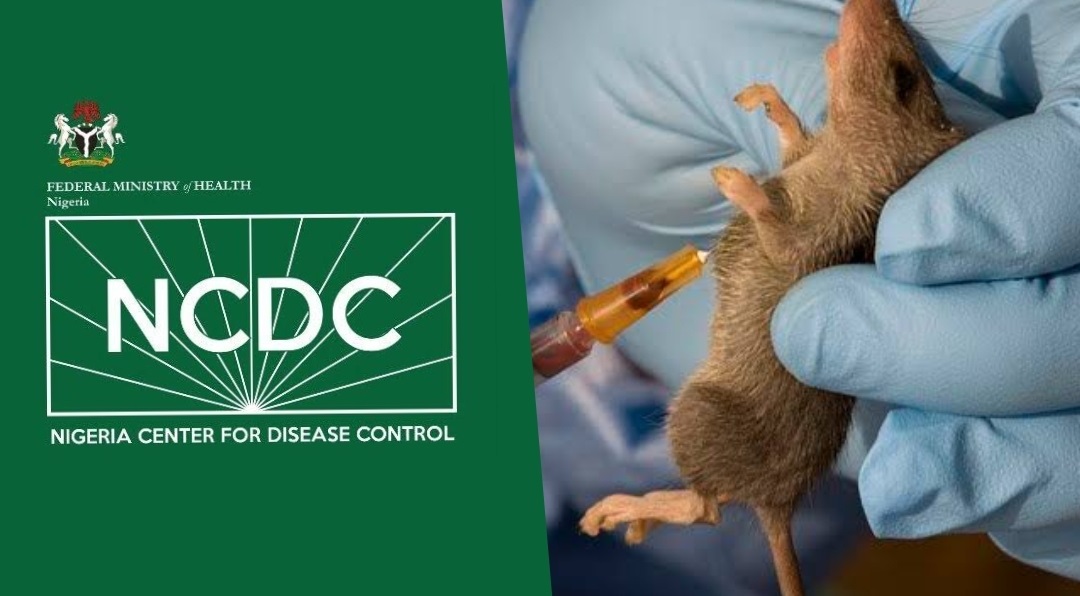Health
Medical Experts Identify 3 Major Factors Responsible For Kidney Disease

Medical experts have identified Type 2 diabetes, hypertension, and glomerulonephritis as three major factors responsible for the rise in kidney diseases across the globe.
The experts also blamed the surge on unhealthy diets, particularly processed foods.
According to the World Health Organisation, kidney diseases are now the 10th leading cause of death globally, stating that mortality has increased from 813,000 in 2000 to 1.3 million in 2019.
The Nigeria Association of Nephrology says about 20 million Nigerians are presently living with chronic kidney diseases.
Speaking with PUNCH HealthWise in an exclusive interview on the worrisome rise, a Consultant Nephrologist at the Lagos State University Teaching Hospital, Ikeja, Dr. Theophilus Umeizudike, identified an increase in Type 2 diabetes which he blamed on the consumption of processed and unhealthy foods as a major cause of kidneys diseases globally.
Umeizudike also blamed the rise in kidney diseases on hypertension and glomerulonephritis.
The nephrologist explained, “Globally, the cause mainly is because of the increase in Type 2 diabetes which is also rising in our environment.
“The reason why Type 2 diabetes is rising globally is because of people abandoning natural foods for processed foods.
“So, processed foods are the reasons why people are coming down with Type 2 diabetes and people with Type 2 diabetes come down with kidney diseases later in life. Hypertension is also increasing cases of kidney diseases.”
The kidney specialist noted that kidney diseases were on the rise in Nigeria.
“In our clime, we have a very young population that are prone to many infections and inflammatory conditions that can affect the kidneys.
“Oftentimes, the early signs of infection or inflammation of the kidney are silent. So, years down the line, these things begin to manifest.
“In sub-Saharan Africa, we have glomerulonephritis that affects the kidney. It causes kidney damage over months or years usually within a period of five to 10 years. There are viral infections like hepatitis B, C, and HIV that cause kidney diseases”, he said.
The nephrologist also attributed the surge in kidney diseases to a lack of access to affordable healthcare.
Umeizudike said, “Another cause is that many of these young people do not have access to affordable healthcare. So, they resort to alternative therapies like herbal remedies which can damage their kidneys.
“Again, we have a predisposition to coming down with kidney diseases as people of African origin because of gene mutation.”
On how people can avoid coming down with kidney diseases, the nephrologist enjoined them to embrace a healthy lifestyle and to go for regular health checks for early detection and proper management.
Umeizudike explained that when people keep living on processed foods, the tendency to come down with kidney diseases is high.
“Eating processed foods pushes people to Type 2 diabetes and increases the risk of kidney diseases later on in life”, he reiterated.
According to him, for someone to know whether he has a kidney issue, the person must go and do a test, adding that without a medical test, kidney diseases cannot be detected.
He noted, “Medical tests are very important because early forms of kidney disease are completely asymptomatic. Once people start having symptoms of kidney disease, it means that it has advanced which will then require dialysis or transplant.”
He pointed out that everybody should be worried about kidney diseases, assuring however that the risks of kidney diseases could be reduced or avoided through regular health checks and maintaining a healthy lifestyle.
According to him, people in their 20s are coming down with kidney diseases.
Also, a Registered Dietitian-Nutritionist, Cynthia Onyekwere, told PUNCH HealthWise that an unhealthy diet was a major contributing factor to the onset of kidney diseases.
The dietician explained, “For one to keep kidney diseases away, it is important to pay close attention to his/her diet and make some dietary adjustments by mainly reducing intake of certain foods that can affect renal function negatively.
“One of such foods to be reduced is salt. Salt contains sodium which when consumed in excess can cause high blood pressure which can lead to kidney damage.
“To achieve a reduced salt intake, one can start by reducing the amount of salt and stock cubes used in cooking, stop adding salt to meals when eating, and limit intakes of pastries and salty snacks.
“Also, processed foods can also affect renal function and as such should be consumed in limited amounts. Examples of processed foods include canned meat as well as canned fruits and vegetables. They should be consumed sparingly as they contain a lot of sodium.”
Speaking further, Onyekwere noted, “Too much intake of protein can damage the kidneys. Although protein is required for the repair of worn-out tissues and the build-up of new ones, when consumed excessively, it is harmful to the kidneys. This is because it is the kidney that helps the body to get rid of the waste products that are generated after the digestion of protein.
“Eating too much protein will place more burden on the kidneys and this can progressively cause damage. People must also be wary of herbal concoctions to ensure optimal renal function. Herbal concoctions in water or alcohol extracts contain substances that may be toxic to the kidneys.”
Health
SAD! Lassa Fever Claims 127 Lives Across 18 States in Nigeria(List)

The Nigeria Centre for Disease Control and Prevention (NCDC) has reported a sharp rise in Lassa fever cases, with 127 deaths confirmed across 18 states as of April 6, 2025.
According to the agency’s latest situation report, 674 people have tested positive for the virus out of 4,025 suspected cases recorded between January and early April.
The current Case Fatality Rate (CFR) stands at 18.8%, slightly higher than the 18.5% recorded during the same period in 2024, indicating a worrying upward trend.
The most affected states include Taraba (31 deaths), Ondo (26), Edo (17), Bauchi (12), and Ebonyi (11). Other states with reported fatalities are Gombe (7), Kogi (4), Benue (4), Nasarawa (4), Plateau (5), Kaduna (2), and one death each in Enugu, Delta, Cross River, and Ogun.
The report also highlights that 71% of confirmed cases were concentrated in Ondo (30%), Bauchi (25%), and Edo (16%), with the remaining 29% spread across 15 other states. The virus has now reached 93 local government areas nationwide.
Lassa fever is a viral haemorrhagic illness transmitted mainly through exposure to food or household items contaminated by infected rodents, particularly the multimammate rat. It can also spread through direct contact with the blood, urine, feces, or other bodily secretions of an infected person.
The disease predominantly affects people between the ages of 21 and 30, with a male-to-female ratio of 1:0.8, according to NCDC data.
In response to the outbreak, the NCDC has activated the National Lassa Fever Multi-Partner, Multi-sectoral Incident Management System to strengthen surveillance, case management, risk communication, and coordination efforts at all levels.
As the country continues to battle the spread of the virus, the NCDC is urging citizens to maintain proper hygiene, store food in rodent-proof containers, and seek immediate medical attention if symptoms such as fever, headache, sore throat, chest pain, or vomiting occur
Health
FG identifies 1,277 persons for monitoring as Lassa fever kills 122

The Nigeria Centre for Disease Control and Prevention has listed 1,277 persons for follow-up over the possibility of being infected with Lassa fever. This follows the centre recording 659 confirmed cases out of 3,779 suspected cases and 122 deaths in 13 weeks (from January to March 30, 2025).
A report obtained from the NCDC on Friday indicated that no fewer than 18 states across the country have recorded Lassa fever cases, with Ondo, Bauchi, and Edo being the most affected.
The report partly reads, “Cumulatively, in week 13 of 2025, 122 deaths have been reported, with a Case Fatality Rate of 18.5%, which is lower than the CFR for the same period in 2024 (18.7%).
“In total for 2025, 18 states have recorded at least one confirmed case across 93 Local Government Areas. Seventy-one per cent of all confirmed Lassa fever cases were reported from these three states (Ondo, Bauchi, and Edo), while 29% were reported from 15 other states with confirmed Lassa fever cases. Of the 71% of confirmed cases, Ondo reported 30%, Bauchi 25%, and Edo 16%.
“The predominant age group affected is 21-30 years (Range: 1 to 94 years, Median Age: 30 years). The male-to-female ratio for confirmed cases is 1:0.8. The number of suspected cases increased compared to that reported for the same period in 2024. No new healthcare worker was affected in week 13. The National Lassa fever multi-partner, multi-sectoral Incident Management System (IMS) was activated to coordinate the response activities at all levels.”
The report shows that the contacts under follow-up number 1,277, while the contacts that have completed follow-up total 1,448.
According to the NCDC, the disease has affected 20 healthcare workers in eight states so far this year.
Lassa fever is an acute viral haemorrhagic fever caused by the Lassa virus. The natural reservoir for the virus is the multimammate rat (also known as the African rat), although other rodents can also act as carriers.
The public health institute stated that Lassa fever cases occur year-round, with peak transmission periods typically from October to May.
Health
WHO calls for countries to address disruptions to TB services

In the wake of massive cuts in US funding, the World Health Organization (WHO) today called on global health leaders, donors, and policymakers to protect and maintain tuberculosis (TB) care and support services around the world.
In a statement issued ahead of World Tuberculosis Day (March 24), the WHO said the “drastic and abrupt” cuts to global health funding threaten to reverse gains made in global efforts to combat TB, which remains the world’s deadliest infectious disease. Those efforts have saved an estimated 79 million lives worldwide since 2000, the organization said.
“The huge gains the world has made against TB over the past 20 years are now at risk as cuts to funding start to disrupt access to services for prevention, screening, and treatment for people with TB,” said WHO Director-General Tedros Adhanom Ghebreyesus, PhD. “But we cannot give up on the concrete commitments that world leaders made at the UN General Assembly just 18 months ago to accelerate work to end TB. WHO is committed to working with all donors, partners and affected countries to mitigate the impact of funding cuts and find innovative solutions.”
USAID cuts have crippled TB control efforts
While the statement does not specifically mention the US Agency for International Development (USAID), the Trump administration’s freeze of USAID funding, and the subsequent canceling of thousands of contracts issued by the agency, have left a gaping hole in funding for TB prevention, screening, and treatment services. The US government has been the leading bilateral donor to global TB control efforts, contributing $200 million to $250 million annually—roughly one quarter of international donor funding for the disease.
The WHO said 27 countries are facing crippling breakdowns in their TB response, with the biggest impact seen in high-TB burden countries in Africa, Southeast Asia, and the Western Pacific. Among the services that have been disrupted are diagnosis, active case finding, screening, and contact tracing, and those disruptions are resulting in delayed detection and treatment and increased transmission risk. Drug supply chains, laboratory services, and data and surveillance systems have also been undermined.
A recent update from StopTB Partnership, which works on TB response with more than 2,000 partners in 100 countries, provides some detail on the services affected by the USAID funding cuts. In Cambodia, active case finding has halted in half the country, resulting in 100,000 people missing TB screening and 10,000 cases of drug-susceptible (DS)-TB going undetected. In Kenya, sputum sample transport once supported by USAID has halted, affecting the diagnosis of DS- and drug-resistant (DR)-TB. In India, USAID-funded TB screening projects in vulnerable groups have stopped.
The huge gains the world has made against TB over the past 20 years are now at risk as cuts to funding start to disrupt access to services for prevention, screening, and treatment for people with TB.
Those are just three of dozens of examples. In a news release today, StopTB Partnership Executive Director Lucica Ditiu, MD, echoed Tedros’s call for action.
“People with TB need us,” Ditiu said. “We have to remain strong, and we can never ever give up the fight. Through innovative, global and national efforts and standing together, we will be able to achieve these targets of ensuring TB prevention, treatment, and care are accessible to all.”
TB was responsible for an estimated 1.25 million deaths in 2023, according to the WHO’s most recent annual report. An estimated 8.2 million people were newly diagnosed with the disease—the most cases in a year recorded by the WHO since it began global TB monitoring in 1995. High-burden TB countries have only recently begun to recover from the disruptions caused by the COVID-19 pandemic, which the WHO estimates resulted in 700,000 excess TB deaths.
Cuts exacerbate funding shortfalls
As the WHO notes, the funding cuts come amid what was already a shortfall in funding for global TB control efforts. In 2023, $5.7 billion was available for TB prevention, diagnostic, and treatment services in low- and middle-income countries, but that’s only 26% of the 2027 target goal of $22 billion. TB research is receiving just one fifth of its 2022 target of $5 billion. Cuts to US funding are only going to exacerbate the problem.
In a joint statement issued earlier this week, Tedros and the Civil Society Task Force on Tuberculosis called on countries to take urgent action to prevent any disruption to TB services, ensure domestic resources to sustain equitable and essential TB care, and safeguard essential TB drugs, diagnostics, care, and social protection coverage for TB patients. They also urged the establishment of national partner platforms that would bring together public and private sectors, civil society, nongovernmental organizations, professional societies, and donors to maintain momentum against TB in affected countries.
“This urgent call is timely and underscores the necessity of swift, decisive action to sustain global TB progress and prevent setbacks that could cost lives,” said Tereza Kasaeva, PhD, director of WHO’s Global Programme on TB and Lung Health, in today’s WHO news release.
-

 News20 hours ago
News20 hours agoJust in: Gunmen invade pro-Wike group in Bayelsa
-

 Politics6 hours ago
Politics6 hours agoSee list of APC Delta stakeholders holding meeting in Abuja on power sharing formula with Oborevwori
-

 News5 hours ago
News5 hours agoDSS arrests Army major for planning unrest in Delta
-

 News6 hours ago
News6 hours agoFCT minister, Wike announces new appointments
-

 News23 hours ago
News23 hours agoBaptist Convention to Tinubu: Convene National Security Summit Immediately
-

 Sports21 hours ago
Sports21 hours agoJust in: Chelsea maintains top 4 position after thrashing Everton 1-0
-

 News19 hours ago
News19 hours agoPope Francis finally laid to rest
-

 News6 hours ago
News6 hours agoCOVID-19 Vaccine Killed Pope Francis, says Pastor Oyakhilome

















